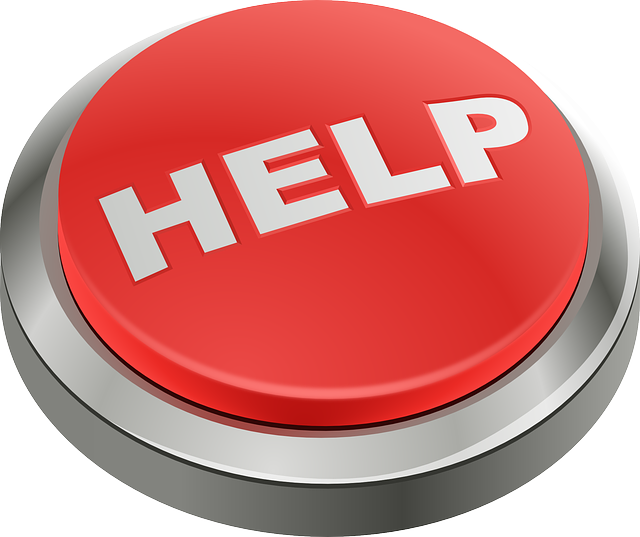Crowdfunding Campaigns: The Emotional Toll
Here's the thing about crowdfunding campaigns, even successful ones: They usually take a massive toll.
By the time you've launched a crowdfunding campaign, at least one with any chance of succeeding, you've already put in a great deal of work. It may have been direct work, developing or creating the project. It may have been the indirect work of community and reputation building. Either way, by the time you're ready to launch, you are INVESTED.
So it's no surprise that running a campaign is emotionally very difficult. I'm going to talk about specific emotional pitfalls and suggest ways of dealing with them. Obvious caveat: I am not a therapist. I am sharing my own experience and that of friends, colleagues and acquaintances.
The Ask

Asking for help is hard. Unless you're a psychopath, appealing to other people to help you do whatever it is your campaign is meant to do is going to be difficult. This is normal. This is natural. You are not weird for feeling this way.
Sending out a general call for help on social media and on a crowdfunding site can be quite difficult. But directly asking people for help? Now that's super hard.
Sadly, it's also essential. Direct, specific appeals are one of the most powerful ways to crowdfund, especially in the early stages of your campaign. Friends and family are the people who already know you, and hopefully believe in you.
How do you make it easier? I strongly recommend reading Amanda Palmer's book THE ART OF ASKING. Or, if you're not going to read a whole book, watch her TED talk:
I'll add that it is okay that it's hard, but that shouldn't stop you from doing it. And if you absolutely positively can't? Ask those closest to you. In each of my crowdfunding campaigns, my dad sent multiple emails to friends. This is partially because he's awesome, and partially because it's a LOT easier to ask for someone else.
The Slow Middle
Every campaign slows down. In my last crowdfunding post, I talked about strategies for moving it along during those difficult times. Now, I want to talk about dealing with the emotional cost. Every person who has ever run a crowdfunding campaign knows the feeling of hitting refresh (or just visiting the tab, if you're using a fancy site like KS which autorefreshes) and not seeing any kind of change. It's disheartening, and if you are prone to anxiety, it is very likely to trigger it.

The first step in dealing with is knowing that it's going to happen. Unless your project is, say, Pebble, or a deck of Exploding Kittens cards, it is going to happen. Numbers are your friends here (and I say this as someone with dyscalculia who hates numbers.):
About 60 percent of the money for most crowdfunding campaigns comes in during the first and last 3 days.
About 80 percent of the project that reach 20 percent funding will reach 100 percent.
Keep these numbers close to your heart during the slow times.
Also helpful is finding other shit to do. It is incredibly tempting to just wrap yourself up in the campaign and spend your days refreshing. Those dopamine hits when people DO support the project are wonderful. But it is not helpful. Other shit CAN be related to the project. Look to my previous post for ideas of stuff to do. But it doesn't HAVE to be. Live your life. See friends. Find another project to work on. Anything other than waiting for the next dopamine hit, because anytime you DON'T get it is a much less pleasant hit.
The Scary End

Unless your project is a great success (in which case, yay!) you will reach the final days with some degree of uncertainty. It may be about reaching the goal, or possibly about reaching stretch goals you really wanted to reach. If you listened to me and set your goal as low as possible, you may want more. This is where you have to reconcile two seemingly contradictory facts:
- Most projects don't reach their goal. They don't even come close.
and - Amazing stuff can happen in the final days
It's easy to look at all the successful crowdfunding projects and think a failure to reach the goal is a personal failure, because look at all those other projects that made it. But remember that 20 percent thing from before? About half of all projects launched on kickstarter never reach that. 419,536 projects have completed on KS. Of those, 206,534 raise between 0-20 percent. 53,674 of THOSE raise 0 percent. Crowdfunding is HARD, y'all.
The flip side is the potential for amazing. The most amazing thing to happen in a project I ran (AKA The Gaiman Miracle) is still subject to a future post, so let's talk about the second most amazing. A group of friends and I were running a campaign for a friend, whose bookstore was in danger of closing. The campaign was sluggish, and we reached the final day at around 50 percent funded. That is, as they say, not the ideal.
However, I had managed to get an editor acquaintance interested in the story, and the piece his writer submitted was published on the last day. In the early afternoon, a massive support came in, with no reward asked for. And then... then things went bonkers. The project didn't just fund, it funded with over 110 percent.
The ends of campaigns have a wild energy sometimes. So while staying aware of the potential of failure, be aware that amazing can also happen.
Failure Isn't Always The End

One of the projects I mention a lot is The Coolest Cooler. It is the second most funded project in KS history.
It is also a re-do of a failed project. The First Coolest Cooler was more expensive, and had a higher goal of $125,000. It made over $100,000 and still failed. The second had a nicer design, they lowered the goal to $50,000 and they removed the portable grill to make it cheaper. It raised $13,285,226.
So keep this in mind: Even if the worst happens, and your project fails, you can learn from that, and apply those lessons to the next iteration.
One Last Thing
My final, overarching piece of advice is this: Don't be afraid to ask friends and family for emotional help, in addition to asking for financial support of the project. Try and diversify the people you're calling on for help, as you don't want to put the entire load of supporting you through a difficult time on one person, but do talk things through with your loved ones.
Coolest Cooler Image credit: Kickstarter
All Other Images: Pixabay
I have seen people use these crowd funding campaigns for some odd things; let alone for personal gain.
I know someone who set up a campaign to pay for their wedding... sorry, but if you want to have an elaborate event, pay for it yourself.
You lost your home in a fire or were displaced due to circumstances not within your personal realm of help? Then I support you and your rebuilding.
Great article @didic, this is the first post of yours I read and I followed you. I see your into WWE also from your last post, me too! Thanks for making me aware of the crowdfunding categories on Steemit. I've been blogging about raising funds to pay for my dog Floppy's back surgery and was unaware of these, mainly posting in blog and life and some of the other headings. Anyhow, I appreciate your help! Here's a link to my blog about Floppy if you are interested, I look forward to your future posts!
https://steemit.com/donation/@geoffreydemars/6f8oql-the-help-my-dog-challenge-day-15-usd34-92-of-usd5-000-00-please-resteem-upvote-donate-directly
When we were fundraising for our service dog, the outpouring of support was emotionally intense, and so was the overwhelming sense of failure when training fell through and the fundraiser didn't bring in enough. We have an amazing support animal now, but I can't bring myself to take the steps necessary to get him service certified because the beginning and the middle of the process were such an immense drain. This article hit home.
Oh, wow. That sounds tough. That's a level of emotional involvement that may be beyond starting one's own company. I know how important service and support animals have been to friends and acquaintances so having the support (and I didn't talk much about how incredible that can feel, as that's going to be in my miracle story) to do that and then having it fall through sounds excruciating.
Great article @didic!
It can be very hard to run a crowdfunding campaign, and yes, there can be many blows to the psyche. We tried to run one some years back to raise the necessary funds for legal fees to make our organization a formal non-profit educational foundation - it was very (sadly!) telling how all the people who were eternally lining up to get something and giving us encouragement mysteriously vanished into the night when asked to materially contribute to the very thing giving them benefit.
Now we're circumventing the whole crowdfunding issue by trying "a year on Steemit" instead and seeing if we can rise the money "one upvote at a time" instead.
@whitelightxpress you just got a free upvote!
$rewarding 15
The reward of this comment goes 100 % to the author didic. This is done by setting the beneficiaries of this comment to 100 %.
exactly we should not feel shy to ask friends and family for emotional help
You should not feel shy about asking them for help even when not running a crowdfunding event, but doubly so when you do.
i agree
It can be hard. But it helps a LOT.
It can be much easier if it's not for me.
I mean when your gonna spend money helping people in need or even animals, you wont be feeling unconfortable 'cause, just like the donator, you're just helping to do the right thing.
Most do not realize that crowd funding only works if you already have a following. If you do not already have a small crowd that are going to put up money in the first three days, the project will just waste into obscurity.
Getting eyeballs first is a hard thing, especially for the geeks that design things. But, it is essential. I hope you do posts on reaching that starting level before the crowd funding campaign.
I actually dealt with this some in my first crowdfunding post: https://steemit.com/crowdfunding/@didic/crowdfunding-rules
Thank you for encouraging article.
I have one experience with fundraising for my friend from Zambia. I didn't use any crowdfunding platform, I just used email and fb and I was amazed how my friends and family got involved and within 2 or 3 days I got about 1400 USD which helped my friend to pay her tuition and other expenses connected with her studies.
Now I am in new situation and I would like to star a fundraising for building a school in Zambia. Beside the previous experience I don't have any practical experiences with fundraising and running campaign but I think I will use some crowdfunding platform. I am bit scared how this campaign will go and if I will have a courage to start it.
I will appreciate any suggestion and help.
Once again, thank you for your article.
I would definitely go for either indiegogo or gofundme, as they are both more socially oriented than kickstarter, which is product based. If I may blow my own horn, definitely read my first post on crowdfunding, which gives you all of my basic advice.
Thank you, I have read it is very helpful.
I need some help with launching a crowdfunding campaign. My buddy and I have started a craft brewery business that will be infusing beer with cannabis in Canada once legalized, but we are having trouble getting to the next step- getting a facility and more equipment to scale. Anyone able to offer some help??
I would recommend reading my first crowdfunding post. It's a distilled, non personalized version of what I tell clients when I consult on their crowdfunding campaign. Good luck!